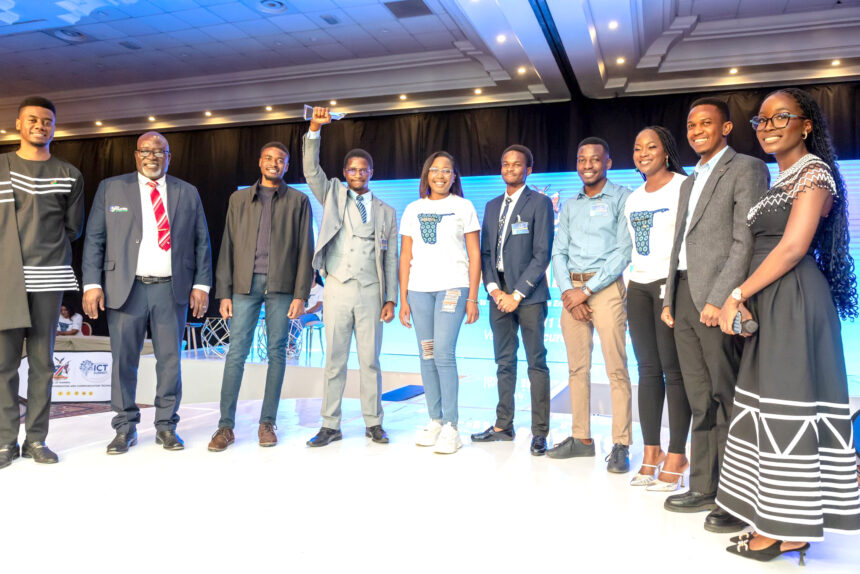In today’s rapidly-evolving technological landscape, the convergence of artificial intelligence (AI) and education is not merely a prospective development. It is on the verge of becoming a reality.
A local tech startup, Okaluli Group, has created a platform that leverages SMS technology and AI, making vital internet-based education resources available to users, even in the most remote regions of Namibia.
The company was recently awarded a Diamond Innovator Prize at the eighth Information and Communication Technology summit in Windhoek for its innovative approach to education and information accessibility.
Billet came in second, and Autono-Me scooped third position.
Datavue secured fourth place, while Hydrowatch Investment cc rounded out the top five in fifth place.
All winners will receive mentorship from CC Hub Namibia, paving the way for their innovative ideas to flourish.
Speaking to Youth Corner, Wilbard Lazarus, the founder of Okaluli Group, said their objective is to address the digital divide that has significantly affected the education of numerous children in Namibia.
They will be offering tailored educational resources and real-time information through SMS.
He said the platform guarantees that students, irrespective of their geographical location or internet access, can obtain the necessary tools for their academic success.
“There is no need for users to use a smartphone or install an application. Okaluli works on any mobile phone, including a ‘tamagotchi’ or ‘katoshe’. Our inspiration for creating Okaluli came from the alarmingly high failure rates in Namibian schools. We believe that by improving the quality and accessibility of education, we can address the youth unemployment crisis,” noted the innovator.
He revealed that the company plans to revolutionise education and information accessibility in Namibia and beyond.
“With 600 active users, 8000 messages received, and 20000 messages sent to date, the platform is growing rapidly. However, one of the current limitations is the ability to handle more users on a larger scale,” he said.
Lazarus added: “To address this, we are seeking funding to build the infrastructure necessary to roll out Okaluli nationwide. Expanding our server capacity and technical infrastructure will allow us to handle a larger volume of users, ensuring that even more Namibians, especially those in rural areas, can access quality educational resources.”
The young innovator believes that with the right support, the company will help reduce the failure rate, which stands at 40%.
“Our future goals include integrating more advanced AI technologies, expanding into other African countries, and making Okaluli a key player in digital education on the continent,” he said.
-pmukokobi@nepc.com.na



